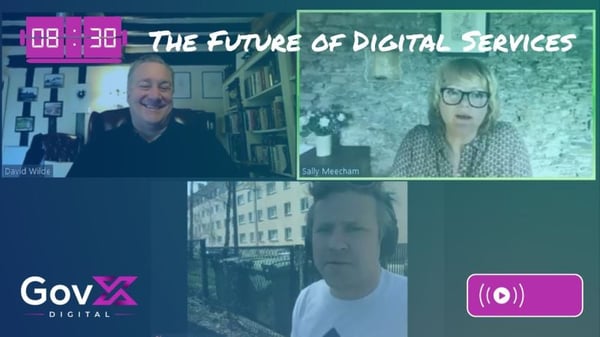How councils can benefit from the Government’s new digital strategy
The UK Government recently unveiled an ambitious digital strategy for the next three years aimed at transforming public services and increase their efficiency for citizens. As the roadmap itself admits, people now expect government services to be as good as the best online experiences they have in the private sector. However, rising to meet these expectations will require change on a scale that government has never undertaken before.
This digital transformation will be particularly challenging at a local and regional government level, where the Local Government Association, the national membership body for local authorities, estimates that English councils will collectively see costs rise by £2.4bn this year, and by £3.6bn during the 2024-25 financial year, as inflationary and cost of living pressures take their toll.
Unfortunately, the digital and data roadmap focuses on digitally transforming central government and does not directly address many of the issues local and regional authorities have to tackle. And yet, the Central Digital and Data Office - the Cabinet Office behind the digital strategy – is working alongside the Department of Levelling Up, Housing and Communities to engage local government to help create alignment with these plans.
No doubt, the changes needed both in central and local government are extremely challenging, but the benefits could be staggering in terms of the financial savings and improved productivity that can be achieved.
Replicating central government successes within local authorities
At a central government level, the government estimates that £1bn in savings could be achieved by replacing outdated IT systems and by switching to digitally transformative cloud-based services, which eliminate unnecessary costs of paper-based services and processes. This kind of savings and productivity gains could be achieved if similar approaches and policies are adopted by devolved, regional and local government.
In its report the government highlights how the onset of the Covid-19 pandemic has accelerated the adoption of innovative new technologies in central government, such as the NHS COVID Pass. But similar digital transformation initiatives in local government should also be praised. Many innovative councils have pivoted and used their digital backbone and local community data to deliver supply packages to the most vulnerable in society, and financially support to local businesses.
Cambridge City Council was able to adapt at speed and seamlessly process and pay more than 12,000 business grants thanks to the agile, cloud-based digital and data infrastructure they had in place. Richard Pym, the council's Payables & Income Manager said: “There was a huge amount of resource saved as a result of us not having to manually enter each COVID grant payment. We need to remind ourselves how difficult this would have been using our old legacy IT system.”
Moving beyond the pandemic, it will be the councils who embrace modern technologies who end up operating more efficiently and with lower costs. While there are expenses associated with switching to new digital infrastructures, there are far greater risks for those who don’t.
The UK government currently spends more than half its IT budget - over £2.3bn a year - patching up ineffective old IT systems. Not only does that hold back innovation, it also means parts of government, and many local councils, fail to meet minimum cybersecurity standards, as old versions of software are vulnerable to cyber-attacks. Several councils have recently been victims of ransomware attacks and some estimate that that it will cost them upwards of £10m to rebuild their IT systems following cyber-attacks - a figure that’s much higher than the cost of switching to secure, modern-day software as a service alternative.
But risk of legacy IT systems aside, it’s the productivity gains and medium-term financial savings that local authorities should be baking into their business case. The government digital strategy says that more “effective flows of data” facilitated by joined-up SaaS-based enterprise resource planning systems can help driving “intelligent digital services and better decisions on investment”. This can also be done by councils.
Replicating the “digital bootcamps” that thousands of civil servants in central government will be sent on by 2025 could also equip local government executives with the “essential” digital skills they will also need to make this change possible. By doing so, digital ways of working and upskilled council workforces will be able to work smarter and faster, as well as deliver value for money for the taxpayer.
By delivering easy to use and seamless digital services that are on par, if not better, than those they experience when buying groceries or banking, councils then will be able to deliver a real, positive impact on the lives of local people and businesses.






